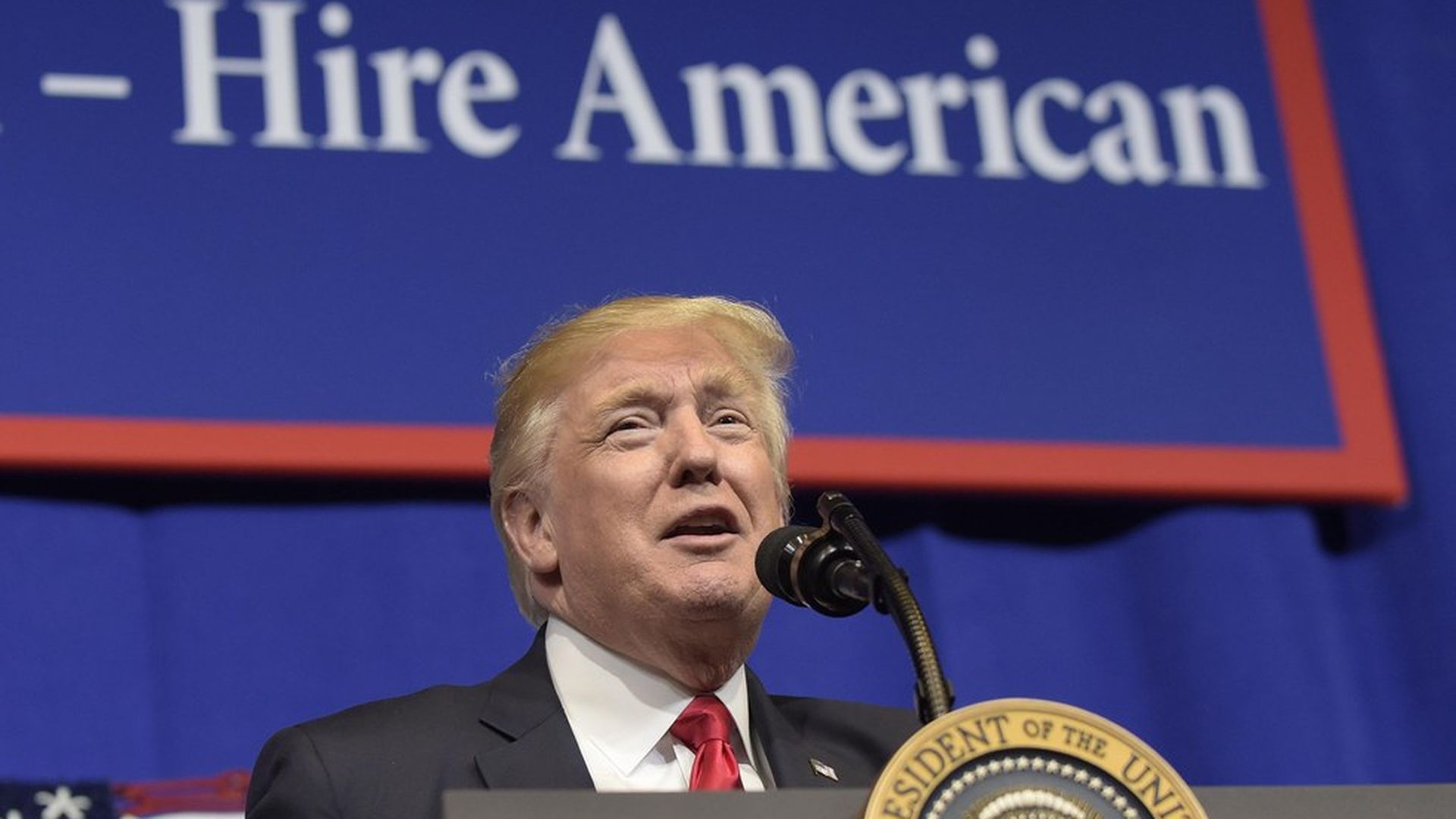How Trump's H-1B visa reforms may hurt start-ups
Add Axios as your preferred source to
see more of our stories on Google.

AP
Start-ups could bear the brunt of the impact from President Trumps' executive order reforming the H-1B high-skilled visa program.
What we're hearing: Startups already have a tough time accessing the current lottery system because their small number of visa applications are dwarfed by the high volume filed by bigger firms. But new direction toward a merit-based system favoring higher salaries will also be detrimental to startups, according to some entrepreneurs, investors and immigration attorneys.
1. Foreign-born founders will have a harder time getting visas to start companies in the U.S.
- "Immigrants and startups are inextricably linked," said National Venture Capital Association CEO Bobby Franklin, noting the founders of iconic companies like eBay, Google, Intel, Tesla and LinkedIn are foreign-born.
- Vivek Ravisanker, CEO of developer hiring site HackerRank, came to the U.S. on an H-1B visa after landing a spot in the YCombinator incubator program. He now has a green card, but his business partner was denied a visa, so they have to operate the company jointly from the U.S. and India.
- "Companies will now have access to fewer talented immigrants worldwide, which could further exacerbate the skills gap that the H-1B visa serves to help fill," he told Axios.
2. Start-ups will head to other countries instead.
- Reaz Jafri, head of the global immigration practice at the law firm Withers Bergman, said some of his start-up clients are opting to head back to their home countries to start their companies.
- "For foreigners, the most stressful part of being an entrepreneur is not funding, not ideas, not access to technology — it's immigration," Jafri said. "Our loss will be other countries' gain."
3. Investors will also go abroad.
- Kate Mitchell, co-founder and partner at Scale Venture Partners, said the new H-1B restrictions would limit her firm's investment opportunities.
- "A huge number of founders in Silicon Valley are immigrants," she said. "If the U.S. turns away foreign-born entrepreneurs, VCs will need to look for investment opportunities abroad."
4. Raising the salary requirements will hurt startups more than big tech firms.
- "Any attempt to raise the minimum salary for H-1B workers would have, in my opinion, a serious negative consequence to startups," Jafri said. "They don't have unlimited funds but they do need talent —and not all of it is American."
- Startups often compensate employees at least partly in equity and don't have as much cash on hand for salaries, says NVCA's Franklin.
